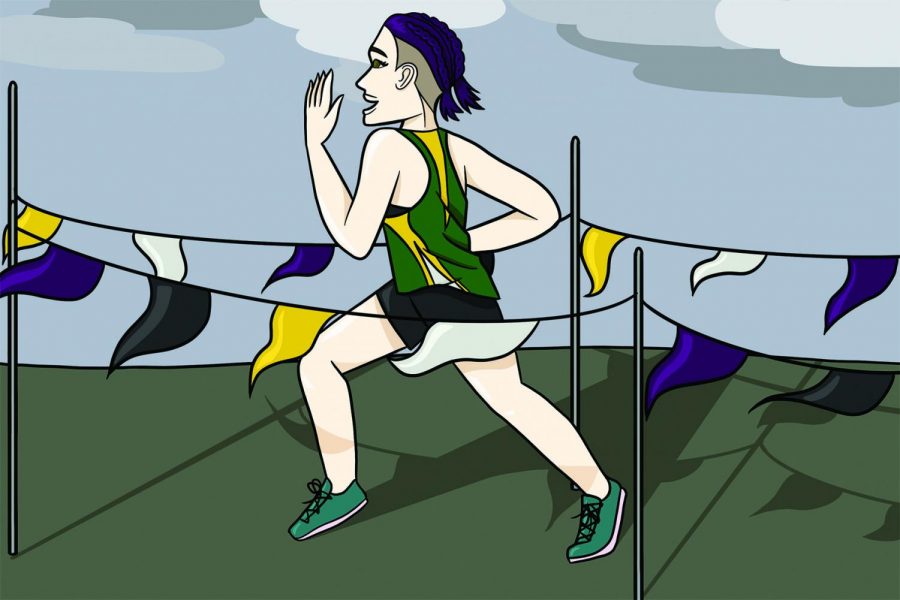No athlete should be left behind
As I get ready for my daily afternoon run, a knot forms in my throat, and my stomach drops to the floor. Nervousness is normal for me, especially before a big cross-country meet. But this nervousness stems deeper than competing against runners from other schools — it is tied to my gender dysphoria.
Gender dysphoria is the distress non-cisgender individuals may face because their gender identity doesn’t align with their body. Personally, I become hyperaware of my body and how uncomfortable I am in it.
This dysphoria is always present during my workouts because I have to focus my attention on my body in order to execute exercises correctly. Some days this feeling affects me more than usual, becoming debilitating at times.
Step after step, the knot in my throat tightens and continues to grow along with my discomfort, diminishing my motivation to finish my run. My gender dysphoria and the heightened anxiety that comes with it could easily stop me in my tracks during training. But I work through the discomfort and, eventually, it goes away. I finally begin to enjoy my run.
The motivation to push through this discomfort doesn’t come naturally to me. It comes from my teammates, coaches and teachers. It comes from knowing that there is a network of people that will support me through my struggles as an athlete and as a human being. Especially for those who aren’t cisgender, a network like this is incredibly important to have. In my junior year, I shared with my coach that I wanted to go by a different name. When she asked me for my personal pronouns, I immediately felt a rush of relief and happiness. While it was a small action, it left a profound impact on me. Supportive actions demonstrated by my coach and later on by my teammates aided me in feeling like I belonged. In a time when transphobia and hatred run rampant, having people behind me helps me keep going and better myself as an athlete.
But this support isn’t seen everywhere. From unsupportive teams to states banning transgender individuals from teams that align with their gender identity, obstacles stand in the way of non-cisgender athletes competing in sports they love.
It’s imperative that the support I receive from my teammates, coaches and teachers as a nonbinary athlete is present for all athletes, especially those who aren’t cisgender. Athletes should have a community of people who are there to aid and support them no matter who they are.


